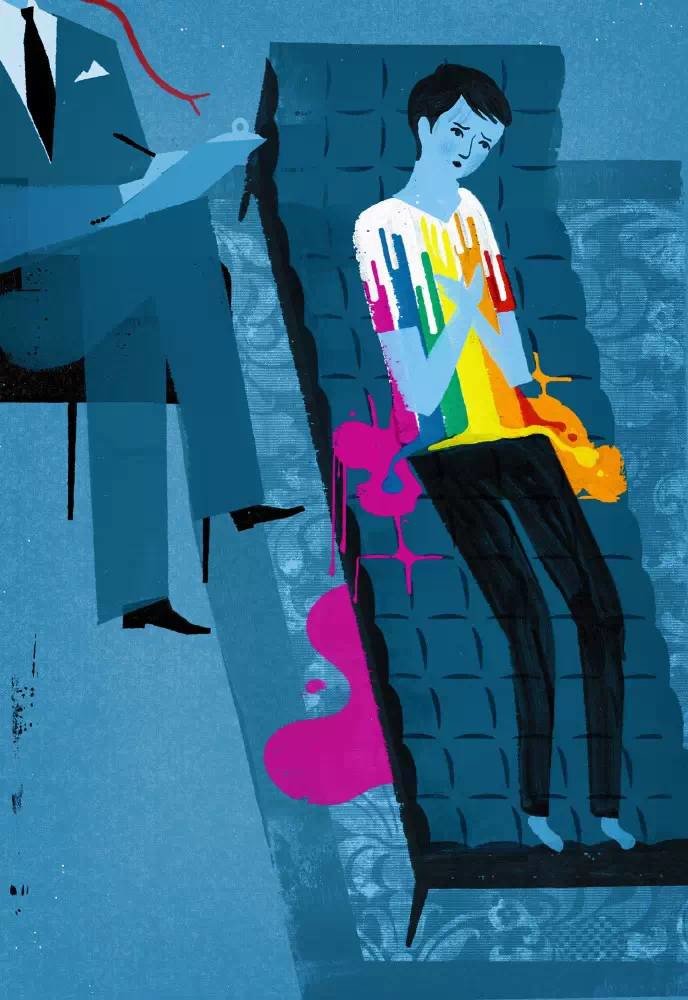I thought it might be fun to write about movies with a mental illness theme that we might not have originally construed as such. My first is Fatal Attraction (1987), the film that scared men toward fidelity by turning a weekend fling into a psychosexual thriller. In reality, it is a movie about an exploited mentally ill woman used by a married man to venture outside his seemingly perfect marriage. Like most people, I was as caught up in the film’s sex and tension, but whenever I reflect back on it and admire it for what it is, I lament what it would have been had it not been altered by a test audience influenced by 80s slasher films.
Upon the film’s release, my understanding of mental illness was limited to people being either a little depressed, or a lot depressed. I knew little about anxiety disorders, less about psychotic disorders, and zero about personality disorders. Years later I realized Fatal Attraction is a story about Borderline Personality Disorder (BPD), an illness still misunderstood today.
Reducing Alex Forrest (Glenn Close) to a woman driven to psychosis through obsession with a married man is oversimplification. In truth, Alex independence and sexuality through symptoms of BPD to formulate a complex character. Although her sexuality is impulsive, we dismiss impulsivity because her married partner is behaving in an equally impulsive way. Instead, we are caught up in the danger, tension, and heat of the affair. Had the initial incident been isolated, we’d never have learned anything about Alex, but because the affair extends through multiple days, other symptoms are revealed.
Chronic characteristics of BPD include unstable sense of self, emptiness, and abandonment sensitivity. Because a “self” does not exist, the person becomes absorbed in someone else in order to attain definition. Since people with BPD crave intimacy, but are also fearful of it, they can’t handle closeness for which they strived, and pull away even while pleading for closeness. What I find most heartbreaking about BPD is the person who experiences it doesn’t understand why these symptoms are being experienced.
Dan Gallagher (Michael Douglas) cultivates a climate for absorption while his wife and child enjoy a weekend getaway during which he and Alex have sex in a sink and an elevator, go clubbing in the middle of the night, and share interest in opera over a dinner cooked together; and that’s not Dan’s low point. The pseudo-couple proceeds to frolic in a park with his dog while Dan refers to Alex as “honey”. Reckless sex is one thing, but taking a woman to a park where you’ve bonded with your child, letting her play with your dog, AND, using a term of endearment crosses a line. Given her vulnerability, Alex assumes a relationship. When Dan’s family returns, he attempts to break away from Alex, leading to spiked anxiety and intensified symptoms.
As is common with BPD, Alex idealizes Dan as a savior who completes her and makes her a”self”. When Dan leaves, Alex’s “self” is threatened; she feels her life lacks meaning, and attempts suicide; another symptom of BPD. Alex exhibits this by slitting her wrists, which momentarily forces Dan to stay and “save” her. Decency dictates Dan call 911, but he chooses to preserve himself by wrapping Alex’s wounds in gauze, and leaving behind a woman who is clearly dangerous to self.
When her suicidal gesture fails to keep Dan close, Alex’s desperation intensifies, and she proceeds to make several phone calls to Dan’s job, manipulates his secretary into providing his home phone number, and eventually shows up there under the guise of potential buyer before the family sells their apartment and moves upstate. Alex eventually stalks Dan there as well, becoming physically ill at the sight of his family around a fire-place with a new rabbit that eventually becomes the subject of lore. All of this indicates poor boundaries associated with BPD, but because the audience aligns with Dan, Alex’s symptoms are misconstrued as obsession.
Borderline rage is a period of intense anger that creates the possibility of internalized aggression like self-harm or attempted suicide, or externalized aggression like when Alex damages Dan’s car with acid, and records an audio tape on which Alex displays mood lability, and proceeds to vilify Dan through verbal hostility.
Alex’s acts of externalized aggression continue through the third act, when scenes depicted in an ending different from the one seen by test audiences created controversy among cast and crew. Alex breaks into Dan’s home and threatens Beth with a knife involved in a previous struggle between the main characters when Dan stormed into Alex’s loft and choked her. The physical altercation is subsequent to a scene in which Dan, an attorney, breaks into Alex’s home in search of evidence to prove she’s unstable. Somehow we remained aligned with Dan, the cheating, physically aggressive, burglar.
In the original ending, Alex commits offscreen suicide by slashing her own throat with the same knife. Because the struggle left Dan’s fingerprints on the knife, he is arrested for murder. When Beth finds the cassette Alex made, she plays it, and hears Alex threatening suicide, and vindicating Dan. The scene then flashes back to Alex slitting her throat to Madame Butterfly, a passion she shares with Dan.
The original ending did little to satisfy public blood lust as Alex is perceived as a “psycho bitch” who is trying to ruin a family, and therefore must die. In reality, she is mentally ill, and Dan exploits that illness for his own pleasure without conscience. In the new ending, Dan drowns Alex in a tub, only to have her pop back up and be shot by Beth. Had the film been made outside Hollywood influence, the more subtle, and to a degree clinically accurate ending would have prevailed. While externalized aggression is possible, such acts are usually directed toward intimates. To date, the correlation between BPD and externalized violence remains under researched.
The effectiveness of the new ending can’t be argued based on box office success, but the fact that a mentally ill person was stigmatized and brutalized while the real culprit got away free of consequence leaves a bad taste in my mouth.
Watch the movie with the original ending through this new lens, and draw your own conclusions.





